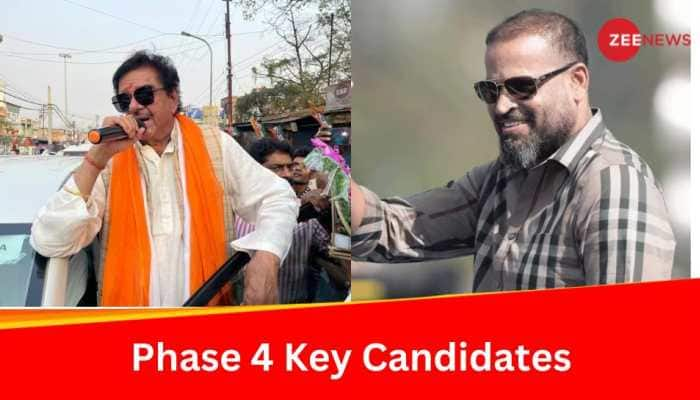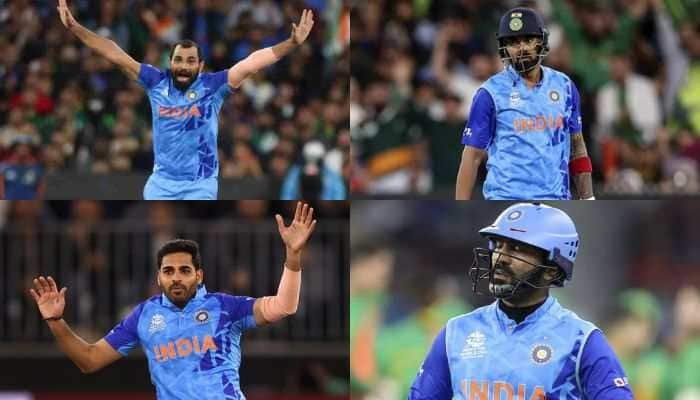DMK bites the UPA bullet, but is it for real?
With one stroke, the patriarch of Tamil Nadu politics has shunned his critics.
Trending Photos
)
 Ajay Vaishnav / Zee Research Group
It was a decision the Dravida Munnetra Kazahagam was longing for quite some time. While the immediate trigger for the Tamil party’s pull out is New Delhi’s stand over Sri Lanka at the UN Human Rights Council, the script for DMK-UPA break-up was ready ever since the incumbent government decided to put DMK chief M Karunanidhi’s beloved daughter Kanimozhi behind bars in the 2G spectrum allocation case in May 2011.
Even though it is doubtful whether DMK will stick to its current posturing (the party has already hinted that it will reconsider its decision in next two-three days), what’s impeccable is Kalaignar’s political acumen and the timing of his decision. With one stroke, the patriarch of Tamil Nadu politics has shunned his critics (despite staying in the government for close to four years) and put the ball in Congress’ court.
Congress, already bearing the brunt of incumbency and a plethora of scams, is in a catch-22 situation. It cannot ignore DMK and court AIADMK’s Jayalalitha who is not less, if not more, mercurial and whimsical than former ally Mamata Banerjee. At the same time, the pertinent question is - why will Jaya board the UPA ship just ahead of the general elections? UPA does not also inspire confidence for a new ally to come on board given its inherent troubles.
The Congress, which ruled Tamil Nadu uninterrupted till 1967, was still a force to reckon with in the state till 1991. In the Lok Sabha elections that year, the Congress won 28 seats partnering with AIADMK which won 11. But, since then, the grand old party of India cannot ignore the fact that its electoral and political fate is invariably tied to an alliance with any of the two major Dravidian parties, particularly the DMK. In fact, a DMK-Congress combine is more symbiotic than say an AIADMK-Congress combine. Party managers in the state know it very well that treading a path alone is just not an option for the Congress. A peep into the recent Lok Sabha history of Tamil Nadu is revealing in this context.
In 2009 elections, Congress won eight Lok Sabha seats from Tamil Nadu under DMK’s umbrella (the latter won 18). The grand old party’s share in 2004 Lok Sabha elections was 10 out of 36 seats won by the DMK-Congress combine. In 1999 Lok Sabha elections, Congress managed just two seats even though its alliance partner AIADMK won 10 seats. Prior to that, in the 1998 elections, Congress didn’t even win a single seat. Back then, its splintered regional avatar, G K Moopnar led-Tamil Manila Congress (TMC) won three seats under the United Front banner. The other constituents of the front included DMK and the Communist Party of India which won 5 and 1 Lok Sabha seats respectively.
In 1996 Lok Sabha elections, Congress again fared poorly in Tamil Nadu. It couldn’t win a single seat even though it was in alliance with the AIADMK. In the polls, newly formed United Front clean swept with DMK-TMC-CPI combine winning all 39 seats at stake. TMC led with 20 seats while DMK won 17 seats.
The DMK pullout decision, therefore, has only complicated the plot for Congress.
Ajay Vaishnav / Zee Research Group
It was a decision the Dravida Munnetra Kazahagam was longing for quite some time. While the immediate trigger for the Tamil party’s pull out is New Delhi’s stand over Sri Lanka at the UN Human Rights Council, the script for DMK-UPA break-up was ready ever since the incumbent government decided to put DMK chief M Karunanidhi’s beloved daughter Kanimozhi behind bars in the 2G spectrum allocation case in May 2011.
Even though it is doubtful whether DMK will stick to its current posturing (the party has already hinted that it will reconsider its decision in next two-three days), what’s impeccable is Kalaignar’s political acumen and the timing of his decision. With one stroke, the patriarch of Tamil Nadu politics has shunned his critics (despite staying in the government for close to four years) and put the ball in Congress’ court.
Congress, already bearing the brunt of incumbency and a plethora of scams, is in a catch-22 situation. It cannot ignore DMK and court AIADMK’s Jayalalitha who is not less, if not more, mercurial and whimsical than former ally Mamata Banerjee. At the same time, the pertinent question is - why will Jaya board the UPA ship just ahead of the general elections? UPA does not also inspire confidence for a new ally to come on board given its inherent troubles.
The Congress, which ruled Tamil Nadu uninterrupted till 1967, was still a force to reckon with in the state till 1991. In the Lok Sabha elections that year, the Congress won 28 seats partnering with AIADMK which won 11. But, since then, the grand old party of India cannot ignore the fact that its electoral and political fate is invariably tied to an alliance with any of the two major Dravidian parties, particularly the DMK. In fact, a DMK-Congress combine is more symbiotic than say an AIADMK-Congress combine. Party managers in the state know it very well that treading a path alone is just not an option for the Congress. A peep into the recent Lok Sabha history of Tamil Nadu is revealing in this context.
In 2009 elections, Congress won eight Lok Sabha seats from Tamil Nadu under DMK’s umbrella (the latter won 18). The grand old party’s share in 2004 Lok Sabha elections was 10 out of 36 seats won by the DMK-Congress combine. In 1999 Lok Sabha elections, Congress managed just two seats even though its alliance partner AIADMK won 10 seats. Prior to that, in the 1998 elections, Congress didn’t even win a single seat. Back then, its splintered regional avatar, G K Moopnar led-Tamil Manila Congress (TMC) won three seats under the United Front banner. The other constituents of the front included DMK and the Communist Party of India which won 5 and 1 Lok Sabha seats respectively.
In 1996 Lok Sabha elections, Congress again fared poorly in Tamil Nadu. It couldn’t win a single seat even though it was in alliance with the AIADMK. In the polls, newly formed United Front clean swept with DMK-TMC-CPI combine winning all 39 seats at stake. TMC led with 20 seats while DMK won 17 seats.
The DMK pullout decision, therefore, has only complicated the plot for Congress.






)
)
)
)
)
)
)
)
)
)
